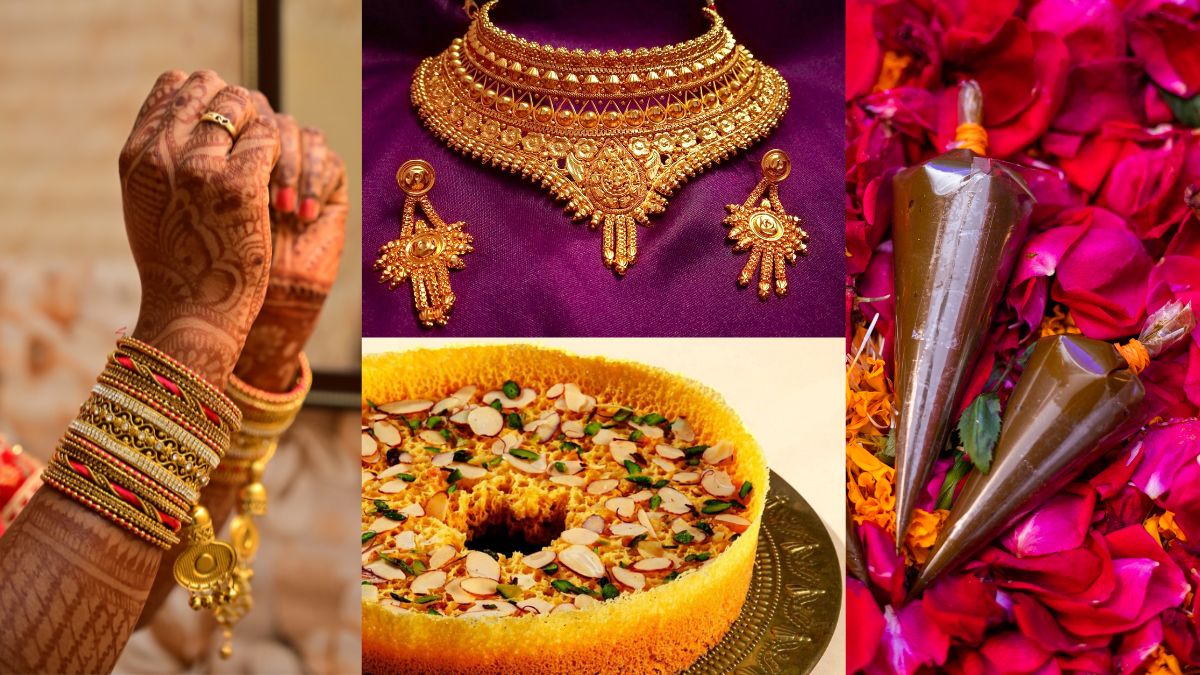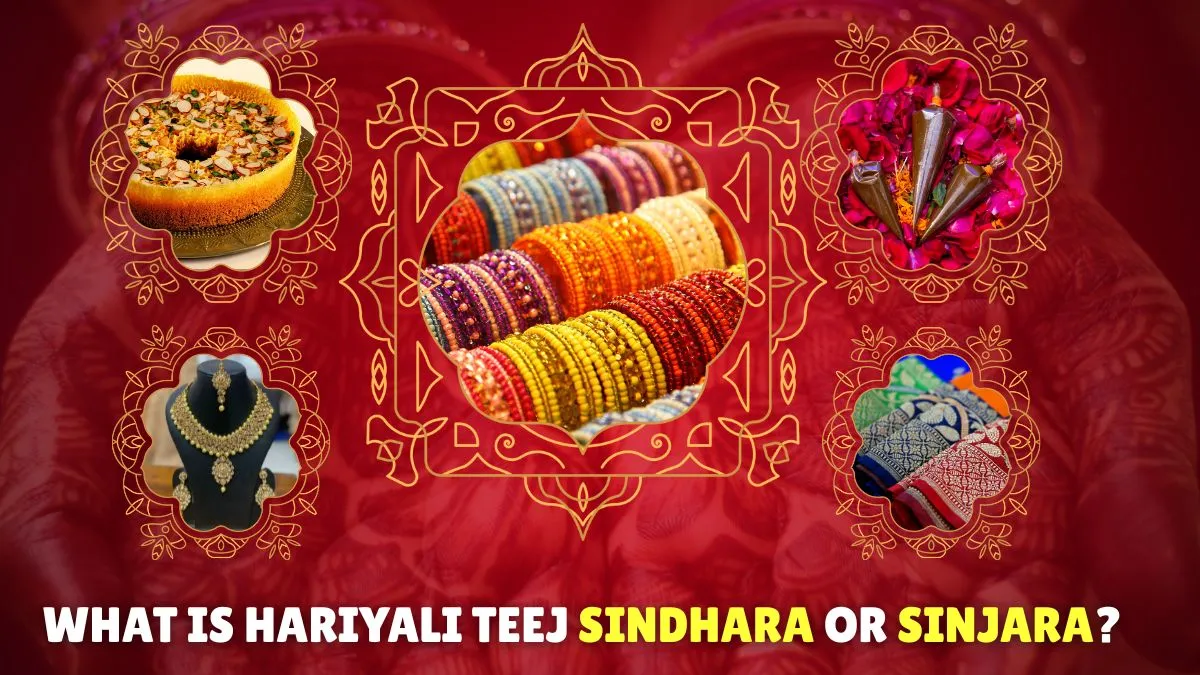- By Kashish Rai
- Thu, 24 Jul 2025 03:45 PM (IST)
- Source:JND
Hariyali Teej 2025 holds deep spiritual and cultural significance in Hinduism, especially for married women in North India. Celebrated during the Shukla Paksha Tritiya of the Shravan month, this vibrant festival symbolises the reunion of Lord Shiva and Goddess Parvati and is marked with devotion, love and tradition. This year, Hariyali Teej will be observed on 27th July 2025. Women dress in green, apply henna and pray for the long life and well-being of their husbands. One of the cherished customs of this day is Sindhara or Sinjara, where women receive gifts from their maternal homes. Let us explore this beautiful tradition and its emotional essence in greater detail further.
Hariyali Teej 2025: What Is Sindhara Or Sinjara Ritual?
Sindhara, also known as Sinjara, is a heartfelt ritual associated with Hariyali Teej, especially cherished by women in North India. On this occasion, married women receive gifts from their maternal homes, symbolising love, blessings, and emotional support. For newly married women, it holds even deeper emotional significance as it reflects the bond between a daughter and her parental home. Sindhara is not just about material offerings, but a celebration of relationships, nurturing memories, and reinforcing familial warmth during the spiritually uplifting festival of Hariyali Teej.
Which Items Are Included In Hariyali Teej Sindhara Or Sinjara?
Hariyali Teej Sindhara, or Sinjara, is a delightful assortment of thoughtful gifts sent to married daughters and daughters-in-law by their maternal families. These items often include vibrant green clothes, glass bangles, mehendi cones, alta, traditional sweets like ghewar and laddoos, and decorative items such as bindis and cosmetics. In some families, it may also include jewellery, dry fruits and a small token of money. Each item carries symbolic meaning – green for prosperity, bangles for marital joy and sweets to sweeten relationships.
ALSO READ: Hariyali Teej 2025: Dos And Don'ts Married Women MUST Observe On This Sacred Fast

Sindhara or Sinjara, is a loving Teej tradition where women receive gifts from their maternal homes, symbolising blessings and affection. (Image Source: Canva)
Is Sindhara Ritual Observed During Any Other Hindu Festival Besides Hariyali Teej?
Sindhara or Sinjara ritual is not limited to Hariyali Teej alone. It is also lovingly observed during Gangaur, another traditional festival celebrated mainly in Rajasthan and parts of North India. Much like Teej, Gangaur celebrates marital bliss and devotion towards Goddess Gauri, an incarnation of Parvati. During this festival too, women receive Sindhara gifts from their maternal homes, which include sweets, clothes, cosmetics, bangles and other adornments. The sentiment behind the ritual remains the same, which is expressing love, blessings and support from a woman's birth family as she observes auspicious vows for her husband's long life and happiness.
Significance Of Hariyali Teej Vrat For Married Hindu Women
Observing the Teej Vrat is considered highly auspicious for married women in Hinduism, especially as it symbolises devotion, love, and the strength of the marital bond. By fasting and offering prayers to Goddess Parvati, women seek blessings for the long life, well-being, and prosperity of their husbands. This vrat is believed to bring harmony, trust, and emotional depth into the relationship, strengthening the spiritual connection between husband and wife. Many believe that just as Goddess Parvati’s unwavering devotion united her with Lord Shiva, a woman’s sincere vrat brings divine grace into her married life.
Beyond the religious aspect, the Teej Vrat is also seen as a time for emotional reflection and cultural celebration. It allows women to reconnect with their traditions, express their femininity through rituals, dressing up, singing, and dancing, and enjoy the warmth of familial ties. The fast is also an act of self-discipline and spiritual cleansing, believed to help balance emotions and align the mind with positive intentions.
(Disclaimer: This content includes advice providing generic information only. It is in no way a substitute for qualified spiritual or astrological opinion. Always consult a specialist for more information before adopting any measures.)
